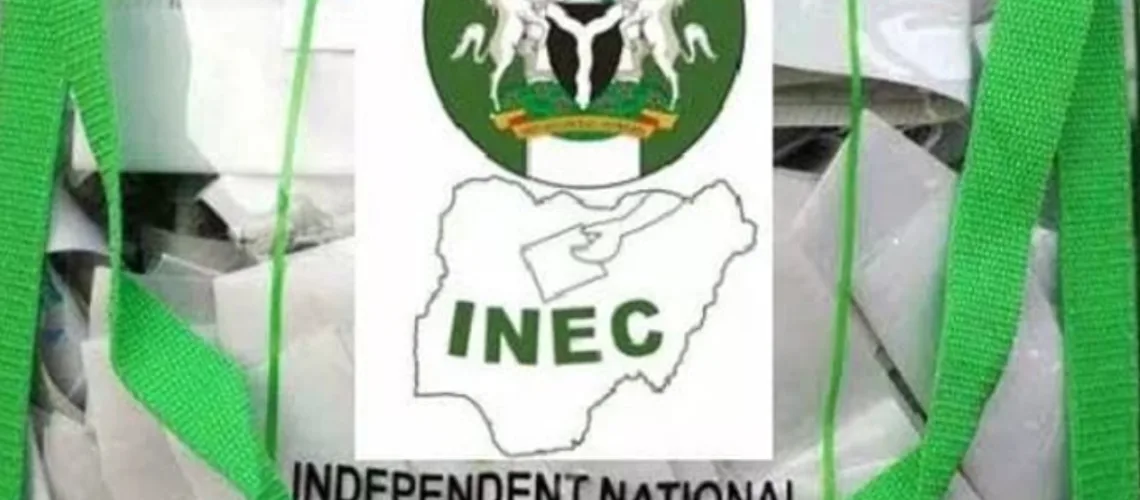Former officials of the Independent National Electoral Commission (INEC) have kicked against a proposed bill seeking to mandate all elections in Nigeria to hold on the same day, citing constitutional breaches, security risks, and logistical difficulties.
They warned that such a move, if passed into law, would not only undermine the independence of the electoral body but could also jeopardise the country’s fragile electoral process.
In an nterview yesterday, a former INEC National Commissioner, Festus Okoye, said the Constitution of the Federal Republic of Nigeria already grants INEC the exclusive power to fix election dates and sequence them accordingly.
He warned that any attempt by the National Assembly to alter this through the Electoral Act would amount to legislative overreach.
Okoye argued, “The Electoral Act, 2022, is a product of the Constitution of the Federal Republic of Nigeria. The Constitution is the grundnorm and the fundamental law of the Federal Republic of Nigeria. Every other law stems from it and does not allow for competition. Where the Constitution has comprehensively provided for a particular issue, no other law can address the same matter, as the Constitution has already covered the ground.
“The Constitution of the Federal Republic of Nigeria grants the Independent National Electoral Commission the exclusive right and authority to organise, undertake, and supervise all elections to the offices of the President and Vice-President, the Governor and Deputy Governor of a State, and the membership of the Senate, the House of Representatives, and the House of Assembly of each State within the Federation.”
He stressed that only a constitutional amendment could take away INEC’s authority to schedule elections, not a new clause in the Electoral Act.
He argued that the National Assembly cannot usurp INEC’s powers through an act of legislation, saying such would be “null, void, and of no effect.”
“Furthermore, Section 76 of the Constitution stipulates that elections for each House of the National Assembly shall be held on a date to be appointed by the Independent National Electoral Commission, while Section 78 states that the registration of voters and the conduct of elections shall be subject to the direction and supervision of the same commission.
“The equivalent provisions in sections 116, 118, 132, and 178 of the Constitution affirm that the elections for State Assemblies, presidential, and gubernatorial positions shall be held on a date appointed by the Independent National Electoral Commission,” he added.
Raising operational concerns, Okoye said such a policy would overstretch Nigeria’s security assets and complicate election logistics.
Okoye said, “Conducting all elections in one day may jeopardise the country’s security assets. It is widely known that the Nigerian military is involved in internal security operations across most parts of the country. This is a response to increased security challenges such as banditry, kidnapping, insurgency, farmers/herders’ clashes, secessionist protests, self-determination movements, cult violence, and other violent crimes. The military is also responsible for protecting some internally displaced persons’ camps.”
On the complexity of managing such an electoral process, he said, “Conducting elections is the greatest emergency in peacetime. This is due to the size and diversity of Nigeria, as well as the state of the national infrastructure. It is a complex process, involving the simultaneous movement of personnel and materials to 176,846 polling units across 8,809 wards in 774 Local Government Areas (LGAs) in 36 states and the FCT. The Commission must secure its funding promptly and accurately, and contractors need to be paid on time. Millions of ballot papers must be printed for all types of elections and potential runoff elections.
“For the 2023 elections, the Commission prepared for 93,469,008 registered voters. It must manage candidate nominations, oversee primaries, and accredit polling agents. In 2003, the Commission accredited 1,574,301 polling unit agents and trained and deployed over 1,131,814 polling unit officials. It hired more than 91,382 vehicles, boats, motorbikes, and human carriers. It collaborated with the Air Force to transport BVAS to various locations and with the Navy to protect personnel and materials at sea.
Read also: INEC sets August 16 for by-elections
“It is better to allow the electoral management body to undertake careful and coordinated planning than to rush into disaster. Advocates of holding all elections in one day should pause and consider the implications of their proposals. Countries that conduct all elections in one day have different orientations, cultures, and value systems. Nigeria’s political class must adopt a new approach before we can successfully schedule all elections on the same day.”
Also speaking, a former INEC Director of Voter Education, Oluwole Osaze-Uzzi, described the proposed bill as unrealistic, recalling how INEC had defeated a similar move in court before the 2003 general elections.
He said only INEC understands its operational capacity and should be allowed to make decisions on election scheduling.
He said, “This is not a new idea. They tried this before when we were in INEC, and we went to court before the 2002 and 2003 elections. We won the case then.
“The power to fix election dates was donated to INEC by the Constitution. So I don’t know whether this bill seeks to alter the Constitution.
“You have to amend the Constitution first before considering such a move. And doing that takes away some of the discretion and independence of the Commission. INEC is the body that can determine whether it is feasible to conduct all elections in one day.
“They are the ones who understand their capabilities, organisational and logistical and can assess whether such an undertaking is realistic.”









